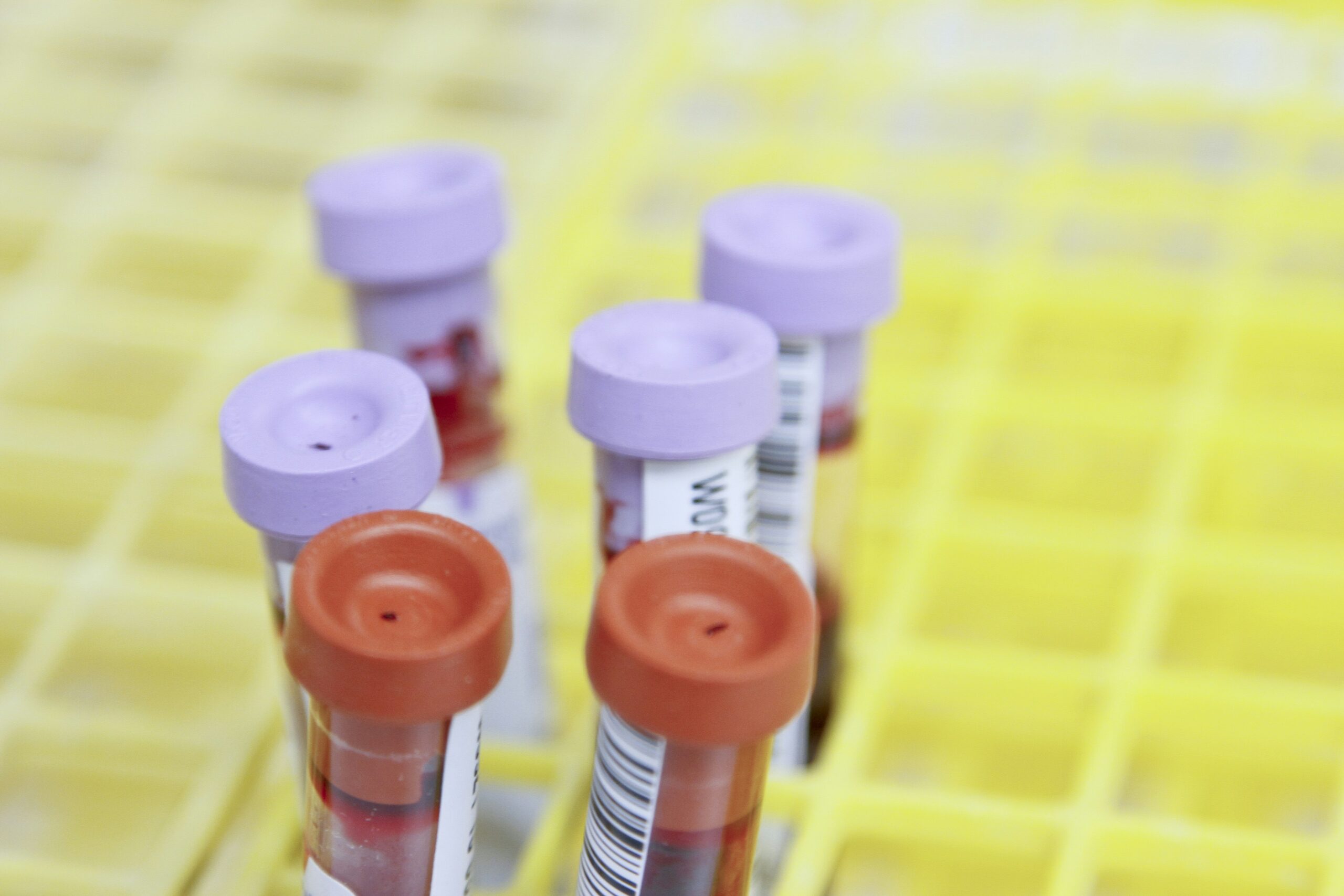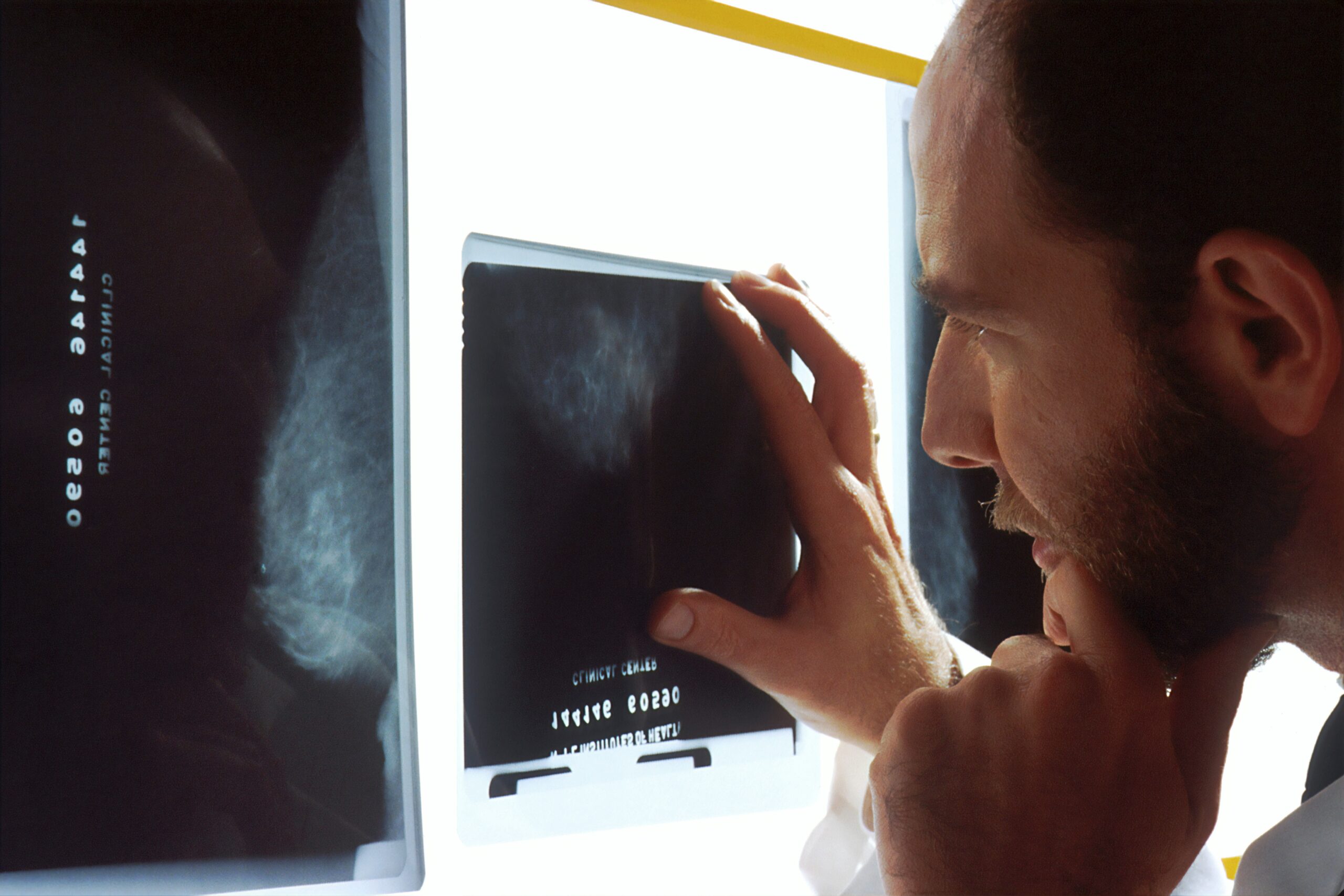Have you ever wondered if a swollen prostate can cause urinary incontinence? It's a question that many people have, and in this brief article, we're going to explore the relationship between these two conditions. While a swollen prostate is a common condition in older men, urinary incontinence can affect individuals of all ages. Understanding how these issues may be related can help shed light on potential causes and treatment options. So, let's dive into the topic and discover what role a swollen prostate may play in urinary incontinence.

Understanding the Prostate Gland
The prostate gland is a small, walnut-shaped gland that is an essential part of the male reproductive system. Located just below the bladder and in front of the rectum, the prostate gland plays a crucial role in producing semen, the fluid that carries and nourishes sperm.
Function of the Prostate Gland
The main function of the prostate gland is to produce and secrete prostate fluid, which forms a significant portion of the semen. This fluid helps in nourishing and protecting the sperm on their journey through the reproductive tract. Without the prostate gland and its secretions, the sperm would not be able to survive and fertilize the egg.
Location and Size of the Prostate Gland
The prostate gland is situated just below the bladder, surrounding the urethra, which is the tube that carries urine from the bladder out of the body. Its close proximity to the urethra makes the prostate gland an important player in urinary function as well. In terms of size, the prostate gland typically measures about 4 centimeters in length and weighs around 20 grams. However, it is important to note that the size may vary slightly from person to person.
Normal Changes in the Prostate Gland over Time
As men age, it is common for the prostate gland to undergo certain changes. One of the most common changes is known as benign prostatic hyperplasia (BPH), which refers to the enlargement of the prostate gland. This non-cancerous condition can occur due to hormonal changes and typically leads to urinary symptoms such as increased frequency of urination, weak urine flow, and the need to urinate at night. While BPH is a normal part of the aging process, it is important to discuss any concerning symptoms with a healthcare professional.
What does it mean when the Prostate is Swollen?
Medical Meaning of a Swollen Prostate
When we refer to a swollen prostate, we are usually talking about a condition called prostatitis. Prostatitis is the inflammation or swelling of the prostate gland, often caused by bacterial infection. It can lead to various urinary symptoms and discomfort in the pelvic region. It is crucial to distinguish prostatitis from other prostate conditions such as BPH or prostate cancer since the treatment approaches may differ significantly.
Symptoms of a Swollen Prostate
The symptoms of a swollen prostate can vary based on the underlying cause. However, common symptoms may include frequent urination, pain or discomfort during urination, pain in the lower abdomen or pelvic region, and a weak urine stream. In some cases, individuals with a swollen prostate may also experience urinary incontinence, which is the unintentional loss of urine. If you are experiencing any of these symptoms, it is advisable to consult a healthcare professional for a proper diagnosis and appropriate treatment.
Types of Prostate Swelling
Prostate swelling can be classified into four main types: acute bacterial prostatitis, chronic bacterial prostatitis, chronic pelvic pain syndrome, and asymptomatic inflammatory prostatitis. Acute bacterial prostatitis is the least common type but can be severe and requires immediate medical attention. Chronic bacterial prostatitis is characterized by recurrent bacterial infections of the prostate gland. Chronic pelvic pain syndrome is the most common type and is often associated with long-lasting pain in the pelvic region. Asymptomatic inflammatory prostatitis does not cause any symptoms but may be detected incidentally during medical examinations.
Understanding Urinary Incontinence
Definition of Urinary Incontinence
Urinary incontinence refers to the involuntary leakage of urine, which can be a distressing condition affecting individuals of all ages, genders, and backgrounds. It can range from occasional minor leakage to complete loss of bladder control. Urinary incontinence can have a significant impact on one's quality of life, leading to embarrassment, social withdrawal, and decreased self-esteem. It is important to remember that urinary incontinence is not a normal part of aging and can often be managed or treated with appropriate interventions.
Types of Urinary Incontinence
There are several types of urinary incontinence, each with its own specific characteristics and causes. Stress incontinence occurs when urine leaks due to physical pressure on the bladder, such as coughing, sneezing, or laughing. Urge incontinence, also known as overactive bladder, is characterized by a sudden and intense urge to urinate, often leading to leakage before reaching a restroom. Overflow incontinence occurs when the bladder does not empty completely, causing it to overflow and lead to leakage. Mixed incontinence is a combination of stress and urge incontinence, where multiple factors contribute to the leakage of urine.
Common Causes of Urinary Incontinence
Urinary incontinence can have various underlying causes. In women, it is often related to childbirth, hormonal changes, and pelvic floor muscle weakness. For men, urinary incontinence can be associated with prostate problems, such as prostate enlargement or prostate cancer. Other common causes include certain medical conditions, such as urinary tract infections, neurological disorders, and obesity. Lifestyle factors, such as smoking, excessive caffeine or alcohol consumption, and chronic constipation, can also contribute to urinary incontinence.
Link between Swollen Prostate and Urinary Incontinence
How a Swollen Prostate can Cause Urinary Incontinence
A swollen prostate can directly impact urinary function and potentially lead to urinary incontinence. The enlargement of the prostate gland in conditions like BPH or prostatitis can contribute to urinary symptoms such as frequent urination, urgency, and weak urine flow. It can also cause an obstruction in the urethra, making it difficult for urine to flow freely. When the urethra is partially blocked or compressed by a swollen prostate, it can result in urinary incontinence as the bladder may not be able to empty completely, leading to leakage or dribbling.
Studies Linking Swollen Prostate and Urinary Incontinence
Multiple studies have investigated the relationship between a swollen prostate and urinary incontinence. Research has shown that the severity of lower urinary tract symptoms, including urinary incontinence, is directly associated with the degree of prostate gland enlargement. Furthermore, men with prostatitis have also been found to have a higher prevalence of urinary symptoms, including urinary incontinence. These studies highlight the important link between a swollen prostate and the development of urinary incontinence in some individuals.

Clinical Explanation of How a Swollen Prostate Causes Urinary Incontinence
Prostate Size and Urinary Problems
As the prostate gland enlarges, it can exert pressure on the urethra, the tube that carries urine from the bladder. This pressure can result in a narrowing of the urethra, making it more challenging for urine to pass through. The reduced flow of urine can lead to urinary symptoms, including urinary incontinence.
Prostate Position and Urinary Problems
The position of the prostate gland in relation to the bladder and urethra plays a crucial role in urinary function. When the prostate gland becomes swollen, it can disrupt the normal alignment and positioning of the bladder and urethra. This misalignment can cause urine to be retained in the bladder or lead to leakage due to an inability to completely empty the bladder.
Prostate Health and Urinary Flow
A healthy prostate gland ensures optimal urinary flow by allowing urine to pass through the urethra freely. However, when the prostate gland becomes swollen, it can obstruct or restrict the flow of urine. This obstruction can cause urine to accumulate in the bladder, resulting in urinary incontinence or other urinary symptoms.
Risk Factors for Urinary Incontinence due to Swollen Prostate
Age and Prostate Problems
Age is a significant risk factor for both prostate problems and urinary incontinence. As men age, the risk of developing conditions like BPH or prostatitis increases, which can contribute to urinary symptoms and incontinence. Regular prostate screenings and early intervention can help minimize the impact of age-related prostate problems on urinary function.
Lifestyle Factors
Certain lifestyle factors can increase the risk of both a swollen prostate and urinary incontinence. Being overweight or obese, leading a sedentary lifestyle, and consuming excessive amounts of caffeine or alcohol can all contribute to prostate problems and urinary symptoms. Adopting a healthy lifestyle, including regular exercise and a balanced diet, can help reduce the risk of both conditions.
Medical History
Individuals with a history of certain medical conditions may be more prone to developing a swollen prostate and urinary incontinence. Conditions such as diabetes, urinary tract infections, and previous prostate surgeries can increase the risk. It is essential to discuss your medical history and any concerns with a healthcare professional who can provide guidance and appropriate management strategies.
Diagnosing Urinary Incontinence caused by a Swollen Prostate
Medical Tests for Prostate Health
To diagnose urinary incontinence caused by a swollen prostate, healthcare professionals may perform various medical tests. These tests may include a digital rectal examination (DRE) to assess the size and texture of the prostate gland, a prostate-specific antigen (PSA) blood test to evaluate prostate health, and a transrectal ultrasound to obtain detailed images of the prostate gland.
Tests for Urinary Incontinence
In addition to prostate-focused tests, healthcare professionals may also conduct tests specifically aimed at diagnosing urinary incontinence. These tests may include a urodynamic study, which assesses bladder and urethral function, a urinary diary to track patterns of urination and leakage, and imaging studies such as a cystoscopy to visualize the urinary tract.
Analyzing Test Results
The results of these tests will provide valuable information to healthcare professionals in diagnosing the underlying cause of urinary incontinence. By analyzing the prostate-related tests alongside the urinary incontinence tests, doctors can determine if a swollen prostate is contributing to the urinary symptoms. Once a diagnosis is made, appropriate treatment options can be discussed.
Treatment Options for Urinary Incontinence from a Swollen Prostate
Non-Surgical Treatments
Non-surgical treatment options for urinary incontinence caused by a swollen prostate may include medications such as alpha-blockers or 5-alpha reductase inhibitors to relieve symptoms and reduce prostate size. Lifestyle modifications, including bladder training exercises, pelvic floor muscle exercises (Kegels), and dietary changes, may also help manage urinary incontinence. In some cases, the use of a urinary catheter or the implementation of intermittent self-catheterization may be necessary.
Surgical Procedures
If non-surgical treatments are unsuccessful or the swollen prostate is causing significant urinary incontinence, surgical intervention may be considered. Procedures such as transurethral resection of the prostate (TURP), laser therapy, or prostatectomy may be recommended to alleviate symptoms and improve urinary function. The specific surgical approach will depend on factors such as the severity of the prostate enlargement, the patient's overall health, and the preferences of the individual and their healthcare team.
Lifestyle Changes
In addition to medical and surgical interventions, making certain lifestyle changes can help manage urinary incontinence caused by a swollen prostate. These changes may include maintaining a healthy weight, staying hydrated, avoiding excessive caffeine or alcohol consumption, managing constipation, and practicing good toilet habits, such as emptying the bladder fully and using the restroom promptly when needed.
Preventing Urinary Incontinence from a Swollen Prostate
Prostate Health Maintenance
To help prevent urinary incontinence from a swollen prostate, it is important to prioritize prostate health. This can be achieved through regular prostate screenings, maintaining a healthy lifestyle, and managing any underlying health conditions. It is also helpful to be aware of the symptoms associated with prostate problems and seek prompt medical attention if any concerns arise.
Diet and Exercise
A well-balanced diet and regular exercise can contribute to overall prostate health and minimize the risk of urinary incontinence. Consuming a diet rich in fruits, vegetables, whole grains, and lean proteins, while limiting processed foods and saturated fats, may be beneficial. Regular physical activity, such as walking, jogging, or strength training, can also help maintain a healthy weight and support urinary function.
Regular Medical Check-ups
Regular check-ups with a healthcare professional are crucial for monitoring prostate health and addressing any concerns. Routine examinations, screenings, and discussions about urinary symptoms can help detect any changes or issues early on. By staying proactive and maintaining open communication with your healthcare team, you can take steps to prevent or manage urinary incontinence caused by a swollen prostate.
Expert Advice and Support
Professional Medical Help
If you are experiencing symptoms of a swollen prostate or urinary incontinence, it is important to seek professional medical help. A healthcare professional specializing in urology or men's health can provide a comprehensive evaluation, diagnosis, and personalized treatment plan. They can offer expert advice and support throughout your journey towards improved prostate health and urinary continence.
Support Groups for Men with Prostate Problems
Joining support groups specifically tailored for men with prostate problems can be highly beneficial. These groups provide a platform for individuals to share their experiences, seek guidance from others who have gone through similar situations, and gain emotional support. Support groups can be found locally or online, providing a sense of community and connection for those dealing with a swollen prostate and urinary incontinence.
Living with a Swollen Prostate and Urinary Incontinence
Living with a swollen prostate and urinary incontinence can be challenging, but it is essential to remember that you are not alone. With proper medical management and appropriate treatment, the impact of these conditions can be minimized. It is important to maintain a positive attitude, follow the guidance of healthcare professionals, and seek support from loved ones and support groups. With time and patience, you can adapt to living with a swollen prostate and urinary incontinence while still maintaining a fulfilling and active lifestyle.


